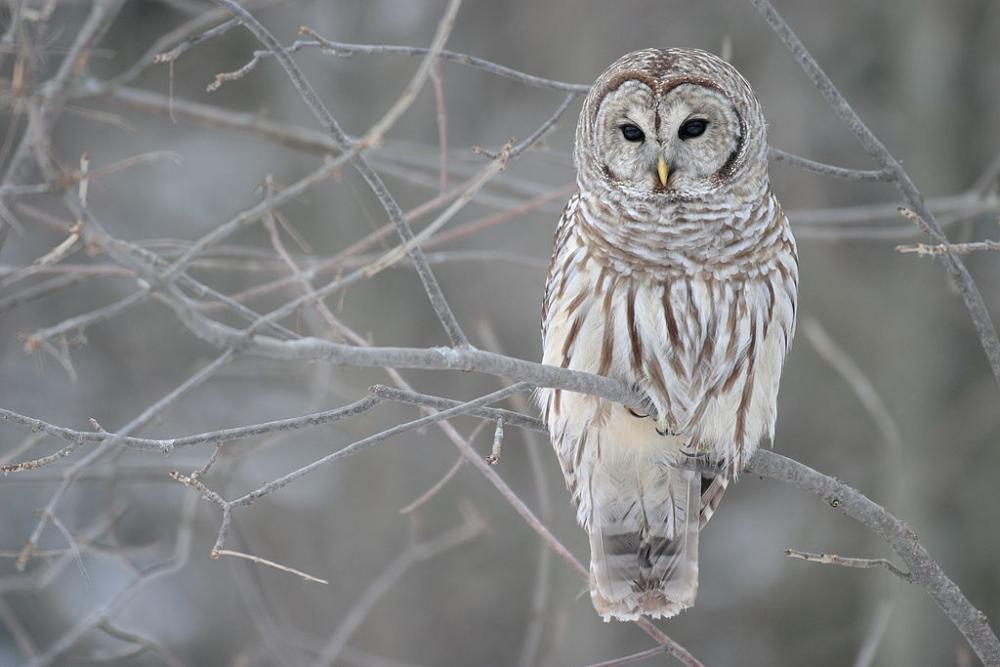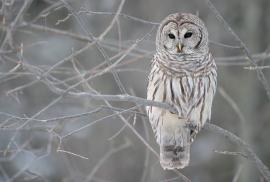Guide to Boreal Birds
Overview
This owl is most often seen by those who seek it out in its dark retreat, usually a thick grove of trees in lowland forest. There it rests quietly during the day. It sometimes calls in the daytime and if disturbed will fly easily from one grove of trees to another. It emerges at night to feed on rodents, birds, frogs, and crayfish. In recent years, this owl has been expanding its range in Washington, Oregon, and California.
Description
20" (51 cm). W. 3' 8" (1.1 m). A large, stocky, dark-eyed owl. Gray-brown, with crossbarring on neck and breast and streaks on belly; no ear tufts. See Spotted Owl.
Voice
A loud barking hoo, hoo, hoo-hoo; hoo, hoo; hoo, hooo-aw! and a variety of other barking calls and screams.
Nesting
2-4 white eggs in an unlined cavity in a hollow tree or (rarely) an abandoned building; sometimes in an old crow's nest.
Habitat
Low, wet woods and swampy forests.
Range/Migration
Breeds from British Columbia, Alberta, Quebec, and Nova Scotia south to northern California and throughout East to Texas and Florida.



